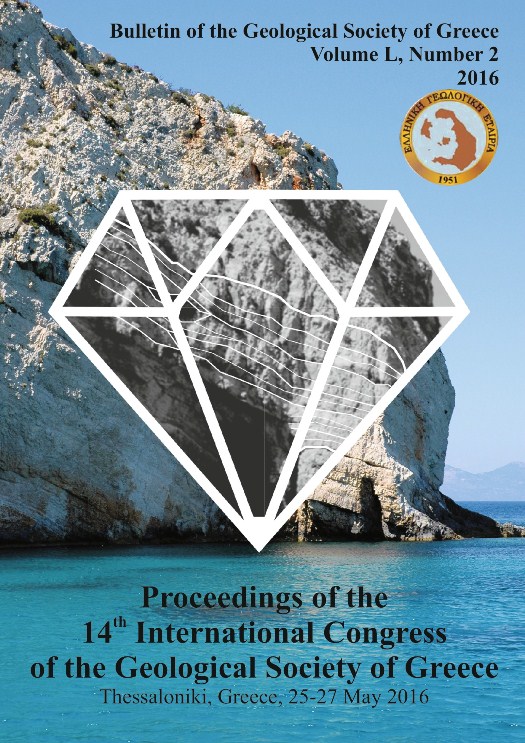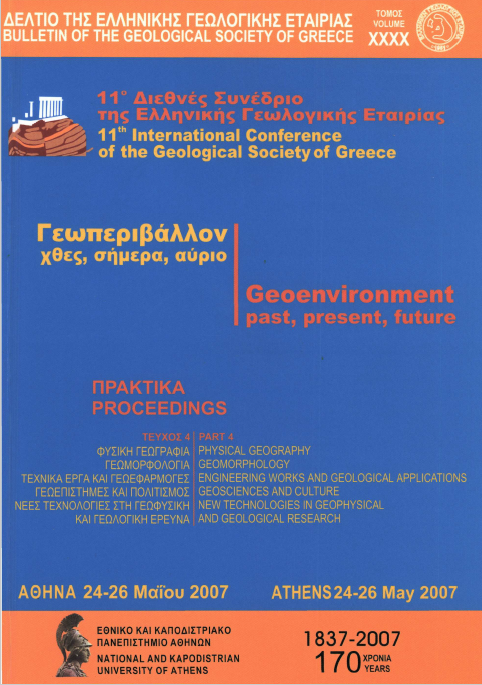ENGINEERING GEOLOGICAL CONDITIONS OF THESSALONIKI BASIN FOR UNDERGROUND WORKS
Résumé
The design and construction of underground works in an urban environment, face several geological challenges. The construction of a well-structured database, able to store, manage, analyse and correlate a large amount of geological and geotechnical data, is a powerful tool towards the geological hazard assessment and the geotechnical characterisation of the formations along a tunnel. The data processed by the database are based on borehole geological information, laboratory testing, geotechnical characterisation and in situ field tests, mainly executed in the quaternary and neogene soil formations that are met along the studied area. The processing and assessment of the information, leads to the identification of useful value ranges for several physical and mechanical parameters. The study also focuses in specific areas within the basin of Thessaloniki, highlighting the in situ conditions, by the construction of longitudinal profiles. The purpose of that process, besides incorporating new data, is to provide a tool for turning data into useful information in order to estimate the geological situation and geotechnical behavior of formations in underground works.
Article Details
- Comment citer
-
Kokkala, A., & Marinos, V. (2016). ENGINEERING GEOLOGICAL CONDITIONS OF THESSALONIKI BASIN FOR UNDERGROUND WORKS. Bulletin of the Geological Society of Greece, 50(2), 760–769. https://doi.org/10.12681/bgsg.11782
- Rubrique
- Engineering Geology, Hydrogeology, Urban Geology

Ce travail est disponible sous licence Creative Commons Attribution - Pas d’Utilisation Commerciale 4.0 International.
Authors who publish with this journal agree to the following terms:
Authors retain copyright and grant the journal right of first publication with the work simultaneously licensed under a Creative Commons Attribution Non-Commercial License that allows others to share the work with an acknowledgement of the work's authorship and initial publication in this journal.
Authors are able to enter into separate, additional contractual arrangements for the non-exclusive distribution of the journal's published version of the work (e.g. post it to an institutional repository or publish it in a book), with an acknowledgement of its initial publication in this journal. Authors are permitted and encouraged to post their work online (preferably in institutional repositories or on their website) prior to and during the submission process, as it can lead to productive exchanges, as well as earlier and greater citation of published work.





